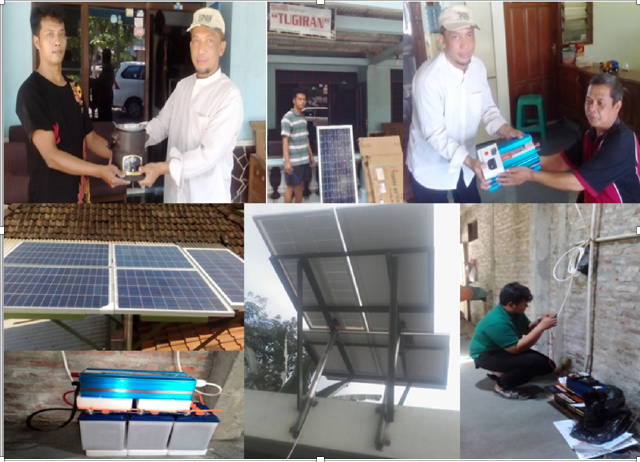Lecturers of Electrical Engineering Department UMY implement a Multi-year Community Service Programme funded by KEMENRISTEKDIKTI
 Batik have been recognized by UNESCO as a cultural heritage of Indonesia. To follow up this recognition, it is important for all to care and conserve batik continuously. The are many ways to address the purpose; one of them is by developing and strengthening national batik industries. The special region of Yogyakarta is one of provinces where some batik factories produce high quality of batik in local or international scale. Historical and geographical aspects have been good and important factors for the industries in Yogyakarta since people have been keeping the cultural tradition of making batik for centuries. Another positive factor, as a well-known tourism destination, it is a support for the industries to sell their products in Yogyakarta.
Batik have been recognized by UNESCO as a cultural heritage of Indonesia. To follow up this recognition, it is important for all to care and conserve batik continuously. The are many ways to address the purpose; one of them is by developing and strengthening national batik industries. The special region of Yogyakarta is one of provinces where some batik factories produce high quality of batik in local or international scale. Historical and geographical aspects have been good and important factors for the industries in Yogyakarta since people have been keeping the cultural tradition of making batik for centuries. Another positive factor, as a well-known tourism destination, it is a support for the industries to sell their products in Yogyakarta.
To contribute to the industries, a team formed by Electrical Engineering UMY staffs and led by Dr Ramadoni Syahputra is carrying out a community service programme through a scheme called PPPE (Exported-Product Development Programme) which is planned to be 3-years program (2017 – 2019). This programme is funded by Directorate of Research and Community Service and Directorate of Research and Development, The Ministry of Research Technology and Higher Education. The aim of the programme is to assist some SMEs (Small and Medium Enterprise) especially in batik production to improve their capacity of production and business management toward strengthening national batik industries. For this programme, Electrical Engineering invited two SMEs in batik industry; SME Batik Sri Sulastri and SME Batik Tugiran. The priority of problems for those SMEs are lack of electrical power capacity, the production processes still rely on gas and oil fuel which is sometimes difficult to get and expensive, paper based in management system, unavailable product information system, resource skills and poor industrial waste-management.
The specific target for the programme is the improvement in the quality and capacity of batik production on each SME with 10% per year over three years period. The increment will impact to the higher cash-flow and additional 10% benefit per year over three years period. The team implemented some methods to gain the target by providing solar home system as electrical supply, tools for recycling wax and dye fabric, automatic electrical batik-stoves, computer based management systems, web based (internet) marketing and product information systems, additional skilled human resources, and industrial waste management systems. That implementation will take some steps during three years and the system for handling industrial waste will be completed in the third year. Industrial waste must be anticipated earlier since it will give serious impacts such as damaging surrounding ecosystems and triggering the resistance of society to the batik industry that will influence to the existence of batik industry itself.
The programme is projected to give some benefits especially for SME Batik Sri Sulastri and SME Batik Tugiran. Moreover, it will also be a role model to the other national SMEs. Further, it is objected to contribute to the development of cultural heritage based and local industries to be able to compete in national and international market.